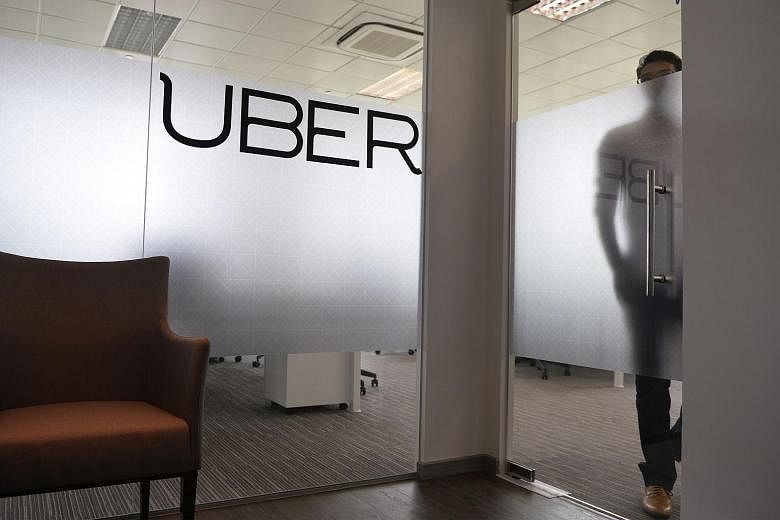Why does it matter that third-party ride-hailing app companies such as Uber and Grab are jostling for certificates of entitlement (COEs) - either directly, or through their partners?
After all, the COE system is an absolute control on vehicle population, whoever the bidders may be.
To answer that, we should look at two recent regulatory changes. One is the Monetary Authority of Singapore's (MAS) curb on car loans, meant to cool overheated COE bidding and to ensure borrowers are not overgeared. The other is the Transport Ministry's move to remove taxis from the COE bidding process, again to take some heat off car bidders. Both changes were introduced a little over three years ago.
Now, three years after third-party ride-hailing apps arrived - led by Uber - the two policy instruments are being turned on their heads.
For instance, Uber has been advertising high car loans to woo marginal car buyers who cannot afford the 40 per cent to 50 per cent down payment required by the MAS. The cars are registered as private-hire vehicles and under a company's name, which exempts them from the MAS ruling.
Not only that, Uber-owned Lion City Rentals has started bidding for COEs on its own, putting in 800 bids in just one tender exercise two weeks ago.
That figure is believed to be just the tip of the iceberg. Uber and Grab are said to have signed up as many as 10,000 private-hire vehicles in just three years and there is no sign that they are slowing down.
What does that all mean? It means the newcomers are making a mockery of the two regulations. They have found ways to game the system, without breaking any rules. It means individual car buyers will again have to compete with big taxi-like firms for COEs. It means COE premiums will not fall as quickly or as sharply as envisaged. It also means individuals who are desperate to own a car will potentially be overgeared if they took up Uber-like offers.
These things, and more, will come to pass, unless the authorities review their "light touch" approach to regulating these newcomers.


